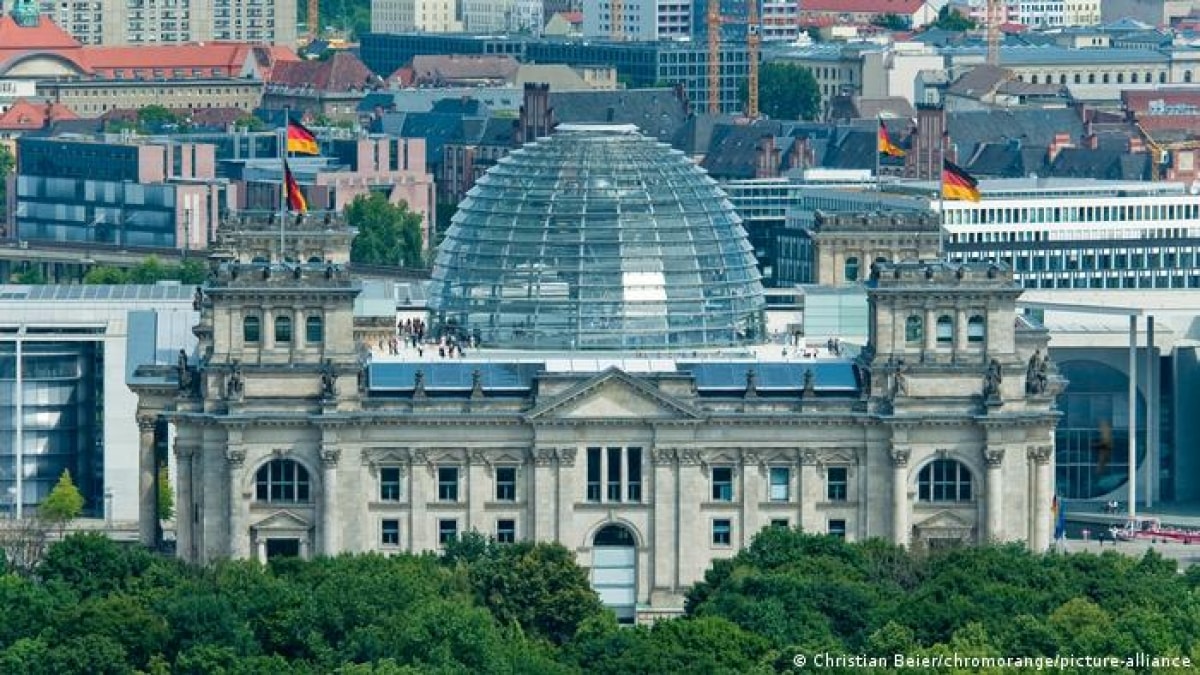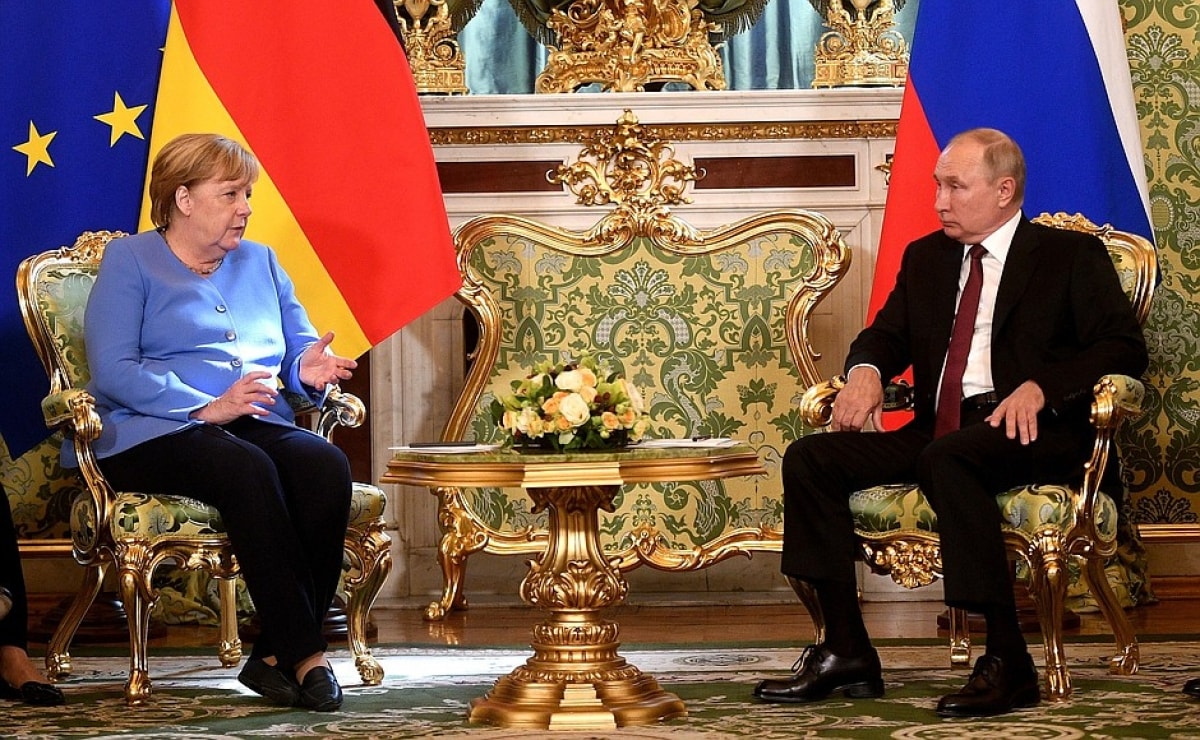Germany's next Chancellor: Can he overcome Merkel's 'shadow'?
Will Germany's next chancellor try to step into Chancellor Merkel's shadow over the past 16 years or will he continue her legacy to steer the country through challenges and assert its leadership in Europe?
Victory is only relative
After 16 years as German Chancellor, the official preliminary election results on September 26 (local time) showed that the Social Democratic Party (SPD) led the Christian Democratic Union (CDU) by 1.6 points, a result so close that no one can predict who the next Chancellor will be or what the next government will look like. The only thing that seems clear is that it will take weeks, if not months, to form a government coalition.
This reality has left the EU's largest country facing uncertainty at a crucial time when Europe is trying to recover from the pandemic and France - Germany's important partner in Europe - is about to hold divisive elections next spring.
 |
The September 26 election marked the end of an era for Germany and Europe. For more than a decade, Ms. Merkel has been not only the German Chancellor but also the prestigious leader of Europe. She has successfully led Germany and Europe through crises and made Germany the leader of Europe for the first time since the two world wars.
The hallmark of Ms Merkel's time in power has been stability. Ms Merkel's centre-right party, the CDU, has ruled Germany in coalition with a smaller party for about 52 of the 72 years since the war.
The recent election, however, has been the most volatile in decades. Armin Laschet, the candidate of Merkel’s CDU party, was long considered the frontrunner until a series of missteps, coupled with falling approval ratings, eroded the CDU’s lead. Meanwhile, Olaf Scholz, the Social Democrat, has been steady in his performance, leading his party to a stunning 10-point surge. The Greens also led the polls initially but have since fallen short of expectations, although they still recorded their best results ever.
On September 26, the CDU's support rate plummeted below 30%, reaching its worst level in history. For the first time in Germany, three parties will be needed to form a coalition government. The CDU and SPD are now planning to hold competitive negotiations to achieve this goal.
At the SPD headquarters in Berlin, crowds cheered as the preliminary election results were announced. "The SPD will be back," Lars Klingbeil, the party's general secretary, told party members before Mr Scholz took to the stage with his wife and declared: "The next German chancellor will be Olaf Scholz."
Meanwhile, at the headquarters of the conservative CDU party, Mr. Laschet, the party's candidate, declared: "We will do everything to form a government."
Talk of an SPD “victory” and a CDU “defeat” is relative. In reality, the two parties are separated by less than 2%, and both parties only account for about 50% of the national vote, enough to form a grand coalition. In the pre-election televised debate, Mr. Scholz asserted that if he had the chance to form a coalition government, he would want to form a coalition with the Greens. However, the SPD cannot form a government with the Greens alone. They still need a third party to form a government.
Overcoming Merkel's "shadow" or becoming Merkel 2.0?
The current chaos could complicate negotiations to form a government. And whoever becomes German chancellor will not only have weaker powers but also less time to devote to leading Europe, analysts said in the New York Times.
“Germany will be absent from Europe for a while. Whoever becomes chancellor will likely be more distracted by domestic politics,” said Andrea Römmele, head of the Hertie School in Berlin.
The results also give significant weight to two smaller parties that are almost certain to be part of the new government: the Greens and the Free Democrats. The narrow margin of victory also suggests that German voters appear disoriented by the departure of Chancellor Merkel, Germany’s most popular politician, who has led Germany through a golden decade to become Europe’s largest economy and brought unemployment to its lowest level since the 1980s.
 |
| Russian President Putin holds talks with German Chancellor Angela Makel. Illustrative photo |
While America is dragged into wars, Britain bets its future on a referendum to leave the EU and France fails to reinvent itself, Germany under Chancellor Merkel remains a stable country.
"It's hard to predict what will happen next. Chancellor Merkel's presence and reputation are so big that it's hard to compete," said Kleine-Brockhoff of the German Marshall Fund.
That explains why both of the most potential candidates to succeed Ms. Merkel have mainly offered a message of continuity, rather than change, of Ms. Merkel's policies and tried to show that they would become the person most similar to the departing Chancellor.
“This election is essentially a competition to see who is most like Merkel,” said Mr. Kleine-Brockhoff.
Even Mr Scholz, who is from the opposition party to Mrs Merkel's conservatives, has focused on his role as finance minister in the current government, rather than emphasizing his party's views.
“Stability, not change, is his commitment,” said Mr. Kleine-Brockhoff.
Some analysts say the increased fragmentation in German politics could bring a new atmosphere to the country's politics with more voices but clarity, which also makes leadership and decision-making more difficult as Germany increasingly resembles other European countries such as Spain, Italy and the Netherlands. A more chaotic political scene will weaken the power of the next Chancellor and the challenges awaiting the future leader will certainly continue to increase./.




.jpg)


.jpg)
